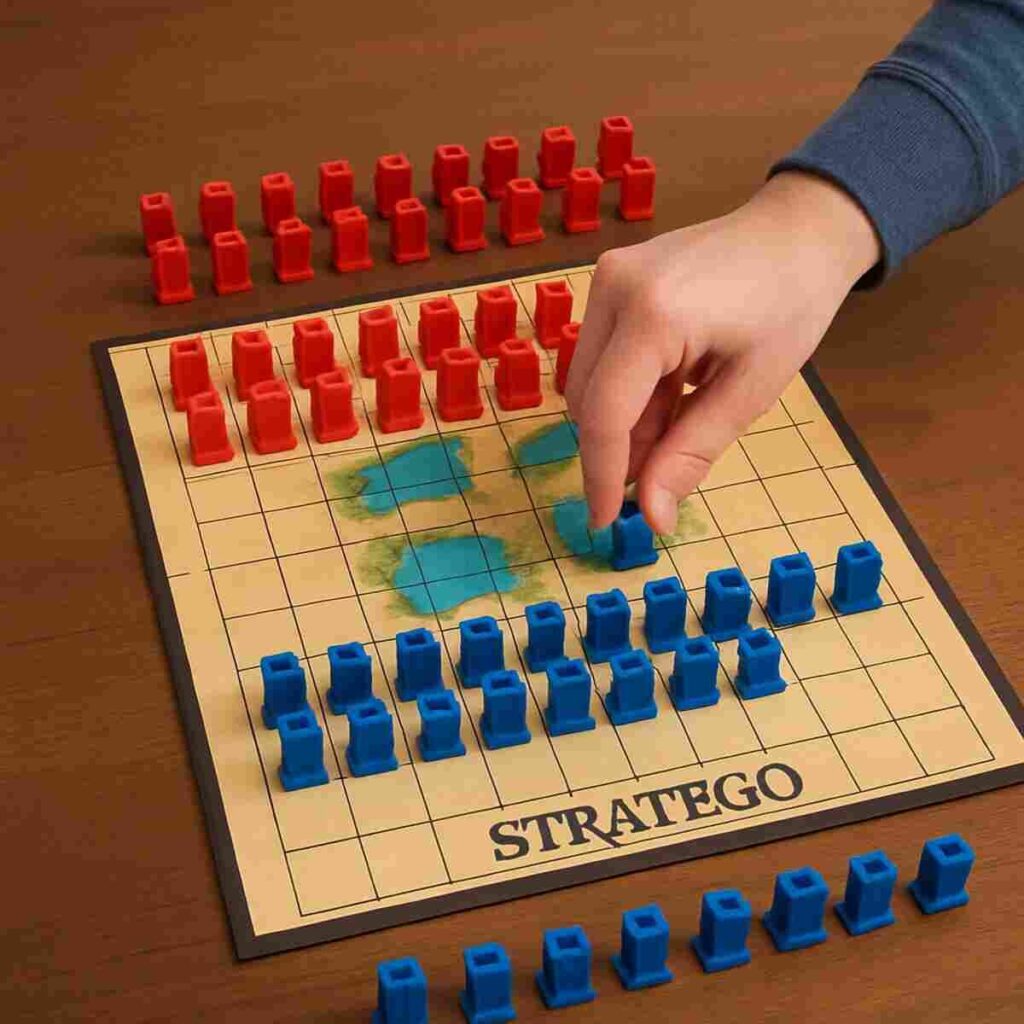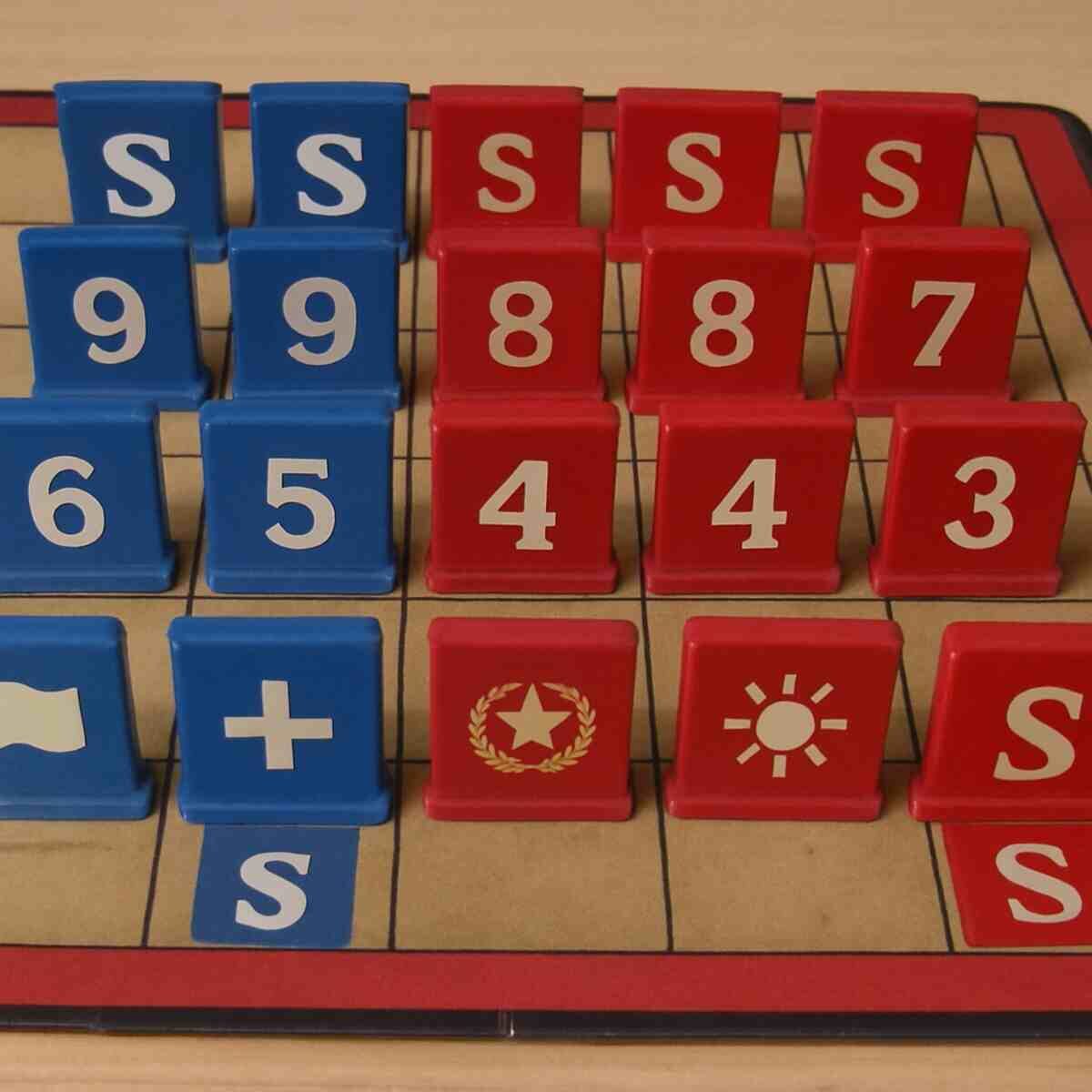Have you ever found yourself completely immersed in the world of online Stratego, only to realize you’re not quite sure how to outsmart your opponent? If you’ve been yearning to improve your game and conquer the battlefield, you’re in the right place. Let’s break down the essential tips and strategies to become a master of online Stratego. Look into the Best info about sms808.
Understanding the Basics of Stratego
Before we dive into the strategies, it’s crucial to establish a solid understanding of the basics of Stratego. If you’re new to this, Stratego is a strategy board game where you control an army and aim to capture your opponent’s flag. Each player has an array of pieces, each with different ranks and abilities. Mastering these basics lays the foundation for more advanced tactics.
The Objective of the Game
At its core, the objective of Stratego is straightforward: capture your opponent’s flag while protecting your own. This involves strategic placement of your pieces, making calculated moves, and anticipating your opponent’s strategy. Understanding this primary goal will guide your decisions throughout the game.
The Pieces and Their Roles
Each piece in Stratego has a rank, from the lowly Spy to the high-ranking Marshal, and a specific role to play. Familiarizing yourself with these roles and ranks is essential. Knowing which pieces can defeat others will help you make informed decisions during an attack or defense.
Movement and Attacking
Unlike many board games, movement in Stratego is restricted to one square per turn, adding a layer of strategy to your every move. Attacking involves moving your piece into the same square as an opponent’s piece, and the higher-ranking piece wins. The only exception is the Spy, which can defeat the Marshal. Mastering movement and attack mechanics is key to strategizing effectively.
Setting Up Your Army
Your initial setup is crucial. The key here is to balance defense and offense, all while keeping your flag well-protected. A common beginner mistake is placing the flag at the back, heavily guarded. While this seems safe, experienced players might expect it.

Creating a Balanced Defense
A strong defense doesn’t just rely on placing high-ranking pieces around your flag. It’s about creating layers of defense using a mix of ranks. Consider placing Bombs strategically to block key paths and mixing in lower-ranked pieces to confuse your opponent. A dynamic defense can often turn the tide of the game.
The Art of Deception in Setup
Unpredictability is a powerful tool. By mixing high-ranking pieces with low-ranking ones, you can create deceptive layers of defense. This unpredictability forces your opponent to second-guess their moves, providing you with opportunities to exploit their hesitations.
Offense as a Form of Defense
Remember, the best defense is often a good offense. By placing some of your stronger pieces closer to the front lines, you can take the fight to your opponent. This aggressive stance can disrupt their strategy and give you control over the flow of the game.
Key Strategies for Success
Now that we’ve covered the basics, let’s look at some strategies to up your game. Stratego requires not just knowledge of the game but also the ability to think several steps ahead, adapting your strategy as the game unfolds.
Bluffing and Deception
In Stratego, bluffing is your secret weapon. Try using low-ranking pieces to bait your opponent into attacking, allowing your higher-ranking pieces to swoop in for the kill.
Psychological Warfare
Bluffing isn’t just about moving pieces; it’s about getting into your opponent’s head. Use fake tells, such as moving a Scout (rank 2) aggressively, to suggest it’s a more powerful piece. This psychological warfare can lead your opponent to make mistakes, thinking they’re attacking a high-value target.
Creating False Trails
Another effective bluffing tactic is creating false trails. By moving low-ranking pieces in patterns that suggest a strategic plan, you can lure your opponent into traps. This deceptive maneuvering can open up opportunities for your more powerful pieces to strike.
Timing Your Deception
Timing is everything in bluffing. Knowing when to reveal your bluff can maximize its impact. Holding back your true intentions until a critical moment can catch your opponent off guard, leading to significant advantages.
Map Control
Controlling the center of the board gives you tactical advantages, such as better movement options and the ability to respond quickly to threats. Position your pieces in a way that allows for flexibility and adaptability.
The Power of Central Dominance
Securing the center of the board provides a strategic vantage point. It allows you to launch attacks in multiple directions and respond rapidly to your opponent’s moves. This central dominance can be the linchpin of your strategy.
Flexibility in Positioning
Adaptability is key to maintaining map control. Position your pieces so they can support each other, creating a network of defense and attack options. This flexibility ensures you’re prepared for any move your opponent makes.
The Importance of Strategic Reserves
Keeping a reserve of key pieces near the center can be a game-changer. These reserves can quickly reinforce weak points in your defense or exploit openings in your opponent’s position, maintaining your hold on the board.
Knowing When to Attack or Defend
Stratego is not just about attacking; sometimes, the best move is to hold your ground. If your opponent is pressing hard, focus on defense. Use your Bombs wisely to protect key areas and frustrate aggressive opponents.
Assessing the Situation
Understanding the flow of the game is crucial in deciding whether to attack or defend. Analyzing your opponent’s moves and the current board state can help you determine the best course of action.
Strategic Use of Bombs
Bombs are a defensive staple, but their strategic placement can also dictate your opponent’s movement. Use them to guard critical paths or lure your opponent into traps, forcing them to reconsider their strategy.
Balancing Aggression and Patience
Finding the balance between aggression and patience is key. While aggressive plays can yield rewards, patience allows you to wait for the perfect moment to strike, ensuring your attacks are decisive and impactful.
Piece Memory
Try to remember the movements and attacks of your opponent’s pieces. This mental map will help you identify which pieces are which, allowing you to make informed decisions on when and where to attack.
Developing a Mental Map
Create a mental map of your opponent’s piece movements. This map helps you track their high-ranking pieces and predict their strategy, giving you a strategic edge in planning your moves.
Utilizing Patterns for Advantage
Look for patterns in your opponent’s playstyle. Recognizing these patterns allows you to anticipate their moves and counter them effectively, turning their strategy against them.
Enhancing Your Memory Skills
Improving your memory skills can significantly impact your gameplay. Practice recalling piece movements and ranks, refining your ability to maintain a mental map even in high-pressure situations.
Advanced Tactics for Online Play
Playing Stratego online introduces new dynamics. Here are some advanced tactics to consider. With the digital landscape, players face unique challenges and opportunities that can be leveraged to gain an advantage.
Analyzing Opponent Patterns
Online play often allows you to play against the same opponents multiple times. Pay attention to their strategies and patterns. Do they favor aggressive plays, or are they more defensive? Use this knowledge to anticipate their moves and counter them effectively.
Building a Player Profile
Create a mental profile of your opponents over multiple games. Note their tendencies, preferred strategies, and weaknesses. This profile becomes a powerful tool in predicting their future actions.
Adapting to Varied Playstyles
Each opponent offers a new challenge. Adapt your strategy to counter different playstyles, from aggressive attackers to cautious defenders. Flexibility in your approach is crucial to success.
Exploiting Repetitive Behavior
Some players fall into predictable patterns. By identifying these repetitive behaviors, you can set traps and exploit their predictability to gain a strategic upper hand.
Time Management
Online games are often timed, adding pressure to make decisions quickly. Practice making quick, yet strategic decisions. Use your time wisely, especially in the early game, to set up a strong position.
Prioritizing Decision-Making
Effective time management involves prioritizing decisions. Focus on critical moves that have the most significant impact, ensuring that each action contributes to your overall strategy.
Staying Calm Under Pressure
Timed games can be stressful. Developing techniques to stay calm and focused under pressure will help you maintain clarity and make better strategic decisions, even when the clock is ticking.
Practicing Efficient Planning
Efficient planning can shave precious seconds off your decision-making process. Work on developing a structured approach to analyze the board quickly, allowing you to make informed moves with confidence.
Adapting to New Versions
Many online platforms offer different versions of Stratego with varying rules or board layouts. Adapt your strategies to fit these changes. Sometimes, the most successful players are those who can quickly adjust to new environments.
Embracing Rule Variations
Each version of Stratego presents unique challenges. Embrace these rule variations as opportunities to learn and grow, adapting your strategies to maximize your success in each scenario.
Exploring New Board Layouts
New board layouts require fresh approaches. Explore different strategies to navigate these layouts effectively, leveraging the unique features of each to gain an advantage.
Staying Informed About Updates
Stay updated on the latest changes to online versions. Being informed about updates ensures you’re prepared for any new challenges, giving you a competitive edge over less-informed opponents.
Practicing Your Skills
Like any other skill, mastering Stratego requires practice. Here are some tips to keep improving. Consistent practice not only sharpens your skills but also enhances your understanding of the game’s intricacies.
Play Regularly
Consistency is key. The more you play, the better you’ll understand the nuances of the game. Try to play a few games each week to keep your skills sharp.
Establishing a Routine
Create a regular playing schedule that fits your lifestyle. Consistent practice helps reinforce your skills and keeps your strategic thinking sharp, ensuring continuous improvement.
Exploring Different Opponents
Play against a variety of opponents to expose yourself to different strategies and playstyles. This exposure broadens your understanding of the game and prepares you for any challenge.
Setting Personal Goals
Set specific goals for each session to focus your practice. Whether it’s improving a particular strategy or mastering a new tactic, clear objectives help guide your progress.
Learn from Defeats
Every loss is an opportunity to learn. Analyze your games and identify where you went wrong. Was your setup too predictable? Did you misjudge your opponent’s pieces? Use these insights to refine your strategies.
Conducting Post-Game Analysis
Review each game thoroughly to identify mistakes and missed opportunities. This analysis is crucial for understanding what went wrong and how to avoid similar errors in the future.
Embracing Constructive Criticism
Seek feedback from experienced players or online communities. Constructive criticism provides valuable insights into areas for improvement, helping you refine your skills.
Turning Weaknesses into Strengths
Identify patterns in your defeats to pinpoint weaknesses. Use this information to focus your practice, turning vulnerabilities into strengths over time.
Join Online Communities
Engage with other Stratego enthusiasts online. Forums and social media groups are great places to exchange tips, discuss strategies, and even find new opponents to challenge.
Networking with Other Players
Building a network of fellow players enhances your Stratego experience. Engaging with others provides access to diverse strategies and new insights, broadening your understanding of the game.
Participating in Discussions
Join discussions on forums and social media groups to share experiences and strategies. These conversations can spark new ideas and help you stay updated on the latest trends and tactics.
Finding Friendly Competitions
Participate in online tournaments or friendly competitions. These events offer a chance to test your skills against a broader range of opponents, providing valuable experience and learning opportunities.
Bringing It All Together
Mastering online Stratego involves a mix of strategy, deception, and adaptability. By understanding the basics, employing clever tactics, and continuously practicing, you’ll find yourself climbing the ranks in no time. Remember, every game is a learning experience, so embrace the challenges and enjoy the thrill of the battle.
Whether you’re an aspiring novelist looking to sharpen your strategic thinking, a content marketer aiming to improve your analytical skills, or a graduate student seeking to enhance your problem-solving abilities, Stratego offers a fun and engaging way to build these skills.
Ready to take on the Stratego battlefield? Keep these tips in mind, and soon you’ll be outsmarting opponents left and right. Happy strategizing!

